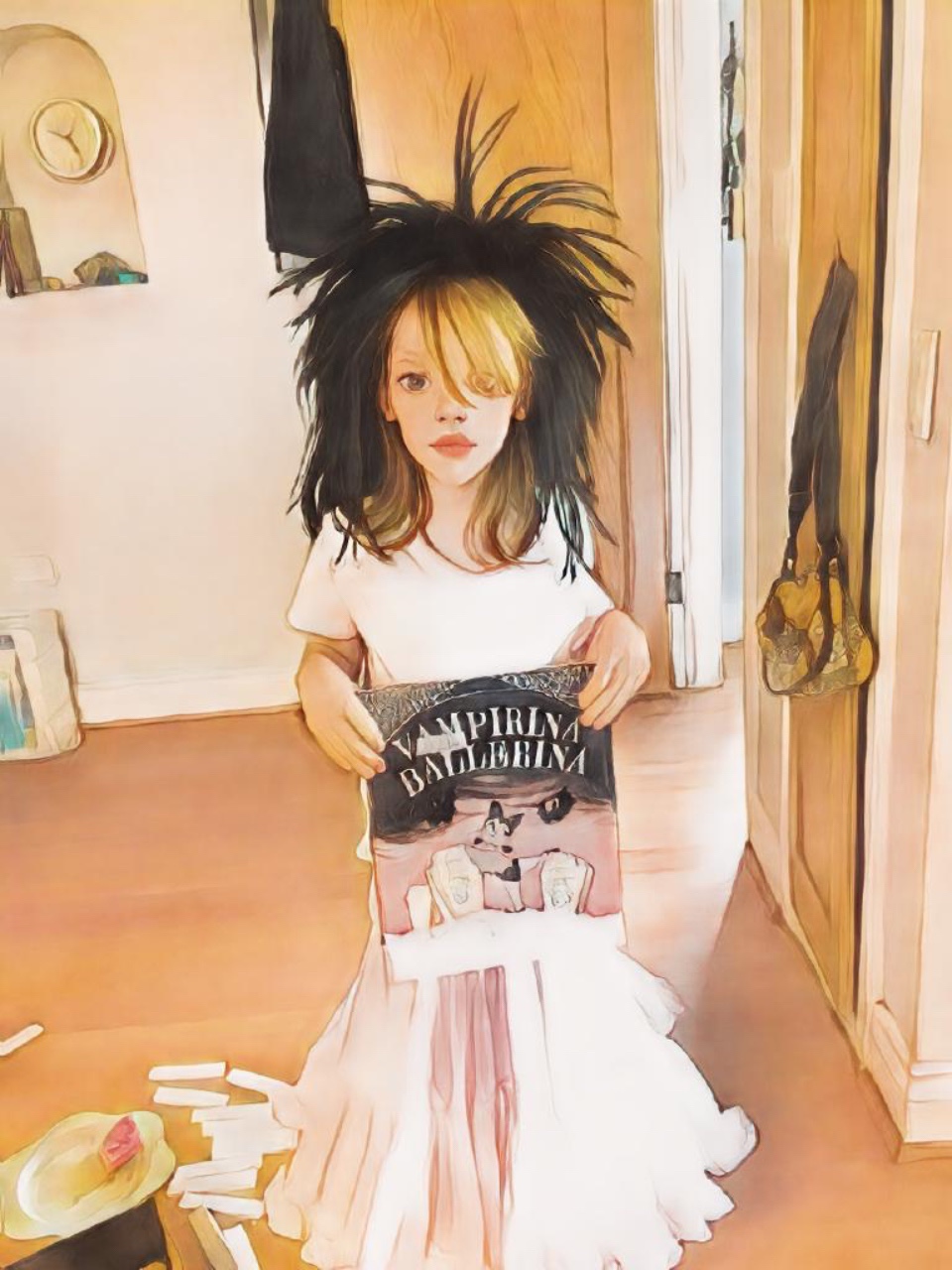I have become hyper-attuned to the particular curl of a staff member’s lip, the slight recoil in their chair, the clenched tone when I insist—again—that my child deserves continued support. These micro-expressions, often passed off as stress or surprise or bureaucratic irritation, are not neutral. They are expressions of disgust. And for families like mine, for children like mine, that disgust cuts deeper than any outright refusal, because it communicates something more existential: you are unwelcome because of who you are and how you persist in being seen.
Disgust as a social sanction
Disgust, as Martha Nussbaum writes, is never just about sensory reaction—it is a moral emotion, one that functions to exclude, to stigmatise, to render another human being as less than.
“Disgust relies on moral obtuseness. It is possible to view another human being as a slimy slug or a piece of revolting trash only if one has never made a serious good-faith attempt to see the world through that person’s eyes or to experience that person’s feelings. Disgust imputes to the other a subhuman nature. How, by contrast, do we ever become able to see one another as human? Only through the exercise of imagination.”
Hiding from Humanity by Martha C. Nussbaum
In classrooms and IEP meetings, this emotion plays out not just in bigotry but in body language—the exhale that says you again, the pursed mouth that says still?, the refusal to make eye contact that says I wish you would disappear.
Staff are trained—implicitly and explicitly—to value detachment, to remain neutral, to regulate their emotions and distance themselves from the emotional expressions of others. But that detachment frays under pressure, especially in underfunded, chaotic systems. And when it breaks down, what emerges is not usually empathy. It is revulsion.
-
A perspective taking primer for educators
Perspective taking is the disciplined art of stepping outside one’s own cognitive scaffolding and entering, as fully as possible, into the sensorium of another person. It is…
When advocacy evokes survival terror
Disgust does not always signal malice. Sometimes it signals collapse. I have felt it myself—after being up eight times in the night with a crying baby, after giving more than I had to give, after reaching the edge of what my nervous system could hold.
There is a moment when someone else’s need feels like an assault, a violation, a threat. The cry of a baby becomes unbearable, not because the baby is wrong, but because your own capacity has turned to ash.
In that moment, disgust becomes a form of self-protection—a desperate barrier erected against further depletion.
Just a Parent
I believe this is what I see in schools. Not just cruelty, but adults at the edge of their own survival, recoiling from the persistence of need they feel unable to meet. And so, disgust becomes the face of a deeper truth: I cannot help you without losing myself.
Disgust in the mirror: the inner lives of staff
And what if that disgust, in some cases, is also a mirror? What if the staff who flinch at my insistence are not only recoiling from my child, but from the parts of themselves they have long silenced—parts that once asked for gentleness, for attunement, for rest? Many educators were trained to override their own needs in service of classroom management and system survival. Many were rewarded for masking—emotionally, neurologically, socially—until their own authenticity became unreachable, or worse, contemptible.
Some are parenting neurodivergent or gender-expansive children of their own and carry quiet heartbreak into every school day. Some are enduring profound moral injury, caught between what they know children deserve and what the system allows. And when I speak with clarity—when I advocate with language they have not permitted themselves to use—it may feel like betrayal, like accusation, like exposure. They may read my insistence as a wound reopened.
Disgust, then, becomes a displaced defence: not just against the child’s need, but against their own forbidden tenderness. It is the nervous system recoiling from an old rupture. It is unprocessed grief contorting the face. It is shame turned outward.
This does not excuse the harm, but it helps explain its texture. Because unless we understand how institutionalised expectations of composure, self-sacrifice, and cheerful neutrality have damaged everyone, we will miss the opportunity for collective repair. The goal is not to indict individual staff for flinching. The goal is to name what that flinch reveals—and to create conditions under which nobody has to live in fear of their own softness.
-
Grievability and legitimacy in BC Schools
Disabled children are being pushed out of public education—and their families are picking up the pieces. This post examines who is seen as worthy of support, what…
Grievability denied
Judith Butler asks in Frames of War: When Is Life Grievable?
Whose lives are considered grievable?
The answer, always, is that only those lives which are first recognised as fully human can be mourned when lost. Disgust blocks that recognition. It makes a person ungrievable by stripping them of moral worth, of visibility, of kinship. And when staff respond to my child—or to me—with disgust, they are denying us that basic threshold of relational humanity. They are saying, in effect: your suffering is excessive; your presence is unwanted; your loss would be manageable.
This is why I find myself in constant conflict with the school system. Because I have already walked far into the wilderness of unmasking. I have started to love myself through my own neurodivergence, reclaimed the parts of me that were called too much, and come to hold my children’s needs not as burdens but as truths. I no longer approach with bowed head or dilute my clarity. And so, there is no way they can find me grievable. Their disgust prevents it.
-
Few of us remain our best selves in a room starved of air
If you are a parent of a neurodivergent child, you can recite the script before the phone even buzzes. “[Child] had a very good day and really…
Gender expression and the recoil of the normative
This disgust was never limited to disability. It came for my children when they tried to express their gender, too. When my son entered school using they/them pronouns and wearing clothes coded as feminine, the reaction from adults was barely contained. The effort to appear tolerant was laboured, strained. And when my daughter transitioned in third grade—living as a trans boy for eight months—the exhaustion, the visible irritation, the subtle grimaces became daily reminders that their gender made them hard to love.
Eventually, both of my children decided that it wasn’t worth it. That expressing their gender authentically created too much adult frustration. That trying to correct pronouns over and over, trying to explain or justify their identity, only made them targets for that same sour, suffocating disgust. And so they resumed cisgendered pronouns.

The emotional cost of institutional recoil
Belonging is not just a policy but an atmosphere, a tone of voice, a glance of warmth rather than distance; it is whether an adult smiles or winces when a child enters the room, whether a name is spoken with comfort or strained neutrality, whether the adult’s body welcomes or resists the encounter.
Children read these cues, scanning faces and voices for traces of invitation or rejection, and when they detect disgust—whether aimed at themselves, at their parent, at their pronouns, at their meltdowns—they do not pause to ask for clarification or reassurance; they conclude that their real selves are unwelcome.
Just a Parent
This is why it matters that staff sigh when I speak. Why it matters that they flinch when I correct a misgendering. Why it matters that they narrow their eyes when I say he still needs help. Because those reactions are not ephemeral. They are remembered and formative. This school, this community, was their entire world, and these attitudes shaped their understanding of who they are and expectations about who they can become.
Naming what is usually hidden
To speak of disgust in this way feels almost obscene, because we are trained to talk about policy, accommodation, process, and needs. But beneath those layers lives something deeper: the emotional atmosphere in which decisions are made. If that atmosphere is saturated with disgust, no policy can protect a child. If an adult cannot say a pronoun without wincing, cannot discuss an IEP without contempt, cannot tolerate a meltdown without visibly recoiling—then the harm has already occurred.
And so I write this down, because I want it remembered: my children retreated because they were clear. They saw the face change. They saw the warmth disappear. They saw that their visibility provoked disgust. And they chose survival over authenticity.
That is a rational choice in a hostile system. But it should never have been necessary.
-
The right amount of agony in BC schools
After watching my children endure eight years of institutional failure, eight years of exclusion disguised as discipline and support withheld under the language of inclusion, I have…
Training as antidote: building capacity for emotional resilience
If disgust is a reaction shaped by exhaustion, internalised norms, and unspoken grief, then it can be softened—but only through deliberate, embodied work. Training alone cannot dismantle systemic revulsion, but thoughtful, reflective, emotionally literate training can open cracks in the wall.
Recent research in teacher education has shown promise in this regard. In a mixed-methods study using immersive Mixed Reality (MR) simulations, teacher trainees were placed in realistic classroom conflict scenarios while their physiological stress responses were measured in real time through heart rate variability.
Afterwards, they engaged in guided, self-compassionate reflection, reviewing their actions and emotional responses aloud in a structured, non-judgmental interview. Those with higher self-compassion scores—who treated their reactions with kindness and perspective rather than harsh self-criticism—showed significantly lower stress responses and greater capacity for perspective-taking.
This matters. Because perspective-taking is the opposite of disgust. It is the ability to imagine what the child is feeling. It is the capacity to soften rather than recoil. And it is teachable.
This kind of immersive, embodied training—especially when grounded in reflective compassion—offers something most professional development avoids: it allows staff to name what they actually feel, to witness the flicker of shame or aversion, and to metabolise it into empathy rather than masking it under procedural compliance. It allows the body to speak, and then to settle.
In a system that rewards stoicism and punishes emotional presence, this kind of training becomes more than professional skill—it becomes moral repair. When staff are invited to explore their own vulnerability, to name the gap between what they want to offer and what the system demands, they are more likely to respond to children not with revulsion but with recognition.
This is not quick work, but it is possible with the appropriate resources, and it offers a map toward a different kind of professional culture—one where emotional integrity, not composure, is the gold standard.
Toward recognition without revulsion
I do not believe that disgust can be eradicated through training alone. It must be confronted—personally, culturally, structurally. It must be named where it hides in plain sight. It must be replaced with something more spacious: curiosity, humility, imagination. We must build schools where a child’s difference does not trigger withdrawal. Where an adult’s exhaustion does not become cruelty. Where need is not synonymous with shame.
My children deserve that world. And so do yours.
-
The scarcity script: how manufactured famine shapes public education
British Columbia’s public schools are not suffering from a natural shortage—they are operating under a system of manufactured scarcity. This blog explores how austerity, rationing logic, and…












